Winner of the Jules and Frances Landry Award for 2014

CONFLICTING WORLDS
NEW DIMENSIONS OF THE AMERICAN CIVIL WAR
T. Michael Parrish, Series Editor
LOATHING
LINCOLN
AN AMERICAN TRADITION FROM THE
CIVIL WAR TO THE PRESENT
JOHN McKEE BARR
 LOUISIANA STATE UNIVERSITY PRESS BATON ROUGE
LOUISIANA STATE UNIVERSITY PRESS BATON ROUGE
Published with the assistance of the V. Ray Cardozier Fund
Published by Louisiana State University Press
Copyright 2014 by Louisiana State University Press
All rights reserved
Manufactured in the United States of America
First printing
Designer: Barbara Neely Bourgoyne
Typefaces: EgyptienneD, display; Ingeborg, text
Printer and binder: Maple Press
Library of Congress Cataloging-in-Publication Data
Barr, John McKee, 1962
Loathing Lincoln ; an American tradition from the Civil War to the present / John McKee Barr.
pages cm. (Conflicting worlds: new dimensions of the American Civil War)
Includes bibliographical references and index.
ISBN 978-0-8071-5383-3 (cloth : alk. paper) ISBN 978-0-8071-5384-0 (pdf) ISBN 978-0-8071-5385-7 (epub) ISBN 978-0-8071-5386-4 (mobi) 1. Lincoln, Abraham, 18091865Public opinion. 2. Lincoln, Abraham, 18091865Influence. 3. PresidentsUnited StatesPublic opinionHistory. 4. Public opinionUnited StatesHistory.
I. Title.
E457.2.B23 2014
973.7092dc23
2013022655
Portions of chapters 1 and 4, respectively, appeared previously as The Tyrannicides Reception: Responses in Texas to Lincolns Assassination, Lincoln Herald 91 (Summer 1989): 5863; and African American Memory and the Great Emancipator, in Lincolns Enduring Legacy: Perspectives from Great Thinkers, Great Leaders, and the American Experiment, ed. Robert P. Watson, William D. Pederson, and Frank J. Williams, 13364. Lanham, Md.: Rowman and Littlefield, 2011. Used by permission.
The paper in this book meets the guidelines for permanence and durability of the Committee on Production Guidelines for Book Longevity of the Council on Library Resources. 
The world has never had a good definition of the word liberty, and the American people, just now, are much in want of one. We all declare for liberty; but in using the same word we do not all mean the same thing. With some the word liberty may mean for each man to do as he pleases with himself, and the product of his labor; while with others the same word may mean for some men to do as they please with other men, and the product of other mens labor. Here are two, not only different, but incompatable [sic] things, called by the same nameliberty. And it follows that each of the things is, by the respective parties, called by two different and incompatable namesliberty and tyranny.
The shepherd drives the wolf from the sheeps throat, for which the sheep thanks the shepherd as liberator, while the wolf denounces him for the same act as the destroyer of liberty, especially as the sheep was a black one. Plainly the sheep and the wolf are not agreed upon a definition of the word liberty; and precisely the same difference prevails today among us human creatures, even in the North, and all professing to love liberty.
ABRAHAM LINCOLN, April 18, 1864
CONTENTS
1. Marked for Bitterness
The Civil War Era, 18581865
2. Expressions of the Lips versus Those of the Heart
Postbellum Disgust, 18651889
3. A New National Type
The Great Imperialist, 18901918
4. The Self-Pity of the Defeated
Contesting Lincolnolatry, 19181945
5. An Infinitely Complicated Figure
Is Freedom Enough? 19451989
6. A Litmus Test for American Conservatism
The Great Centralizer, 19892012
ACKNOWLEDGMENTS
In a sense this book began long ago with my parents, Charlotte Van Deren Barr and Dixon A. Barr. My mother and father were both educators and devoted readers of history and literature, a love of which I am sure in one way or another rubbed off on me. I grew up in Richmond, Kentucky, not far from Mary Todd Lincolns and my mothers hometown of Lexington. My father was from Crown Point, Indiana, and in my boyhood home, or den, I was surrounded by his innumerable books about Abraham Lincoln, while a portrait of Robert E. Leea favorite of my motherwas displayed on the wall nearby. In this North-South marriage my parents were, in Lincolns timeless wording, not enemies, but friends, and my life has always been touched, and it is something for which I am continually thankful, by the better angels of their nature. It is to them, my loving mother and father, that this book is dedicated.
Since 2008 I have been fortunate to teach at Lone Star CollegeKing-wood. Lone Star is one of the finest community colleges in the United States and an outstanding institution of higher learning. It is also one that I think Abraham Lincoln would find admirable in its mission of helping students improve their lifes prospects. I would especially like to thank my history and political science colleagues at Lone Star for their support of Loathing Lincoln. Our department at Kingwood is a menagerie of liberal democrats, social democrats, radicals, libertarians, and libertarian socialists and is a fun and interesting place to teach, talk, and argue. Such disparate political outlooks discredit the idea that there is some type of ideological consistency among professors on all college campuses. Our department chair, Steve Davis, embodies the best in what a history professor should be, both for his colleagues and his students, while Dr. Katherine Persson, the president of Lone StarKingwood, is a key reason that our campus is such an enjoyable place to work. Both Steve and Katherine have encouraged me in writing this book. Finally, there is one colleague and friend in particular whom I especially want to thank. Dr. Amelia Keel, an English professor at Kingwood, read this entire study and offered excellent suggestions for how it might be improved. Amelia was a thoughtful and generous critic, and in addition to helping me write more clearly, she introduced my wife, Susan, and me to Virginia Woolfs novels and essays. For that alone we will always be indebted to her.
In researching this book, I have also incurred numerous debts to librarians and libraries across the United States. I would specifically like to thank Alex Simons at the University of Houston for her assistance in locating articles, journals, and additional sources relevant to my research. I am also especially grateful to Jim Birchfield and Bill Marshall at the Margaret I. King Library at the University of Kentucky, John Coski at the Eleanor Brockenbrough Library at the Museum of the Confederacy, Lynda Crist at the Jefferson Davis Papers at Rice University, Ted Jackson at the Joseph Mark Lauinger Memorial Library at Georgetown University, Nelson Lank-ford and Frances Pollard at the Virginia Historical Society, and Glenna Schroeder-Lein and Thomas Schwartz at the Abraham Lincoln Presidential Library in Springfield, Illinois, for their invaluable help while I was doing research for this book. With the aid of a Murray A. Miller Scholarship Grant from the University of Houston and an Andrew Mellon Scholarship from the Virginia Historical Society (VHS), I spent a wonderful week investigating the archives of the VHS in Richmond and found some excellent anti-Lincoln materials. Likewise in need of acknowledgment are the libraries in Texas I visited and all the librarians across the United States who graciously assisted me either by phone or e-mail in finding materials and then sent them to me because they knew I could not travel to their institutions in person. I would like to thank the Colorado Historical Society in Denver; the Dolph Briscoe Center for American History at the University of Texas at Austin; the Filson Historical Society in Louisville, Kentucky; the University of WisconsinMilwaukee, Golda Meir Library; the Harry Ransom Humanities Center at the University of Texas at Austin; the Henry Rosenberg Library in Galveston, Texas; the Herbert Hoover Institution on War, Revolution, and Peace at Stanford University; the Herbert Hoover Presidential Library in West Branch, Iowa; the Houston Metropolitan Research Center in Houston; the Houston Public Library; the Thomas D. Clark Center for Kentucky History at the Kentucky Historical Society in Frankfort; the Southern Historical Collection at the University of North Carolina Library in Chapel Hill; the Texas State Archives in Austin; and the Jean Heard Library at Vanderbilt University in Nashville, Tennessee. This book is a testament to their contributions and the paradox of the solitary yet collaborative nature of writing and publishing.
Next page

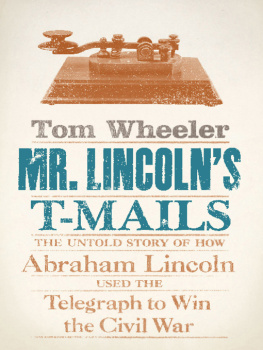
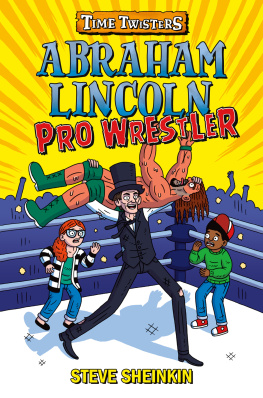
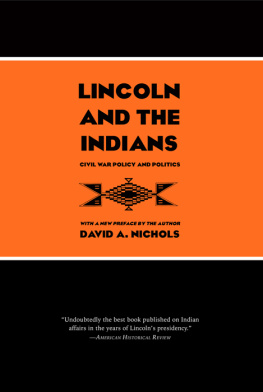
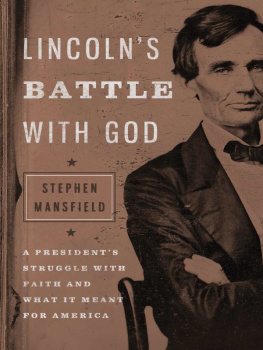
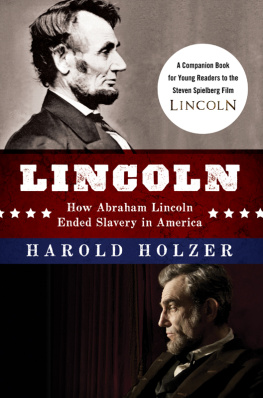



 LOUISIANA STATE UNIVERSITY PRESS BATON ROUGE
LOUISIANA STATE UNIVERSITY PRESS BATON ROUGE